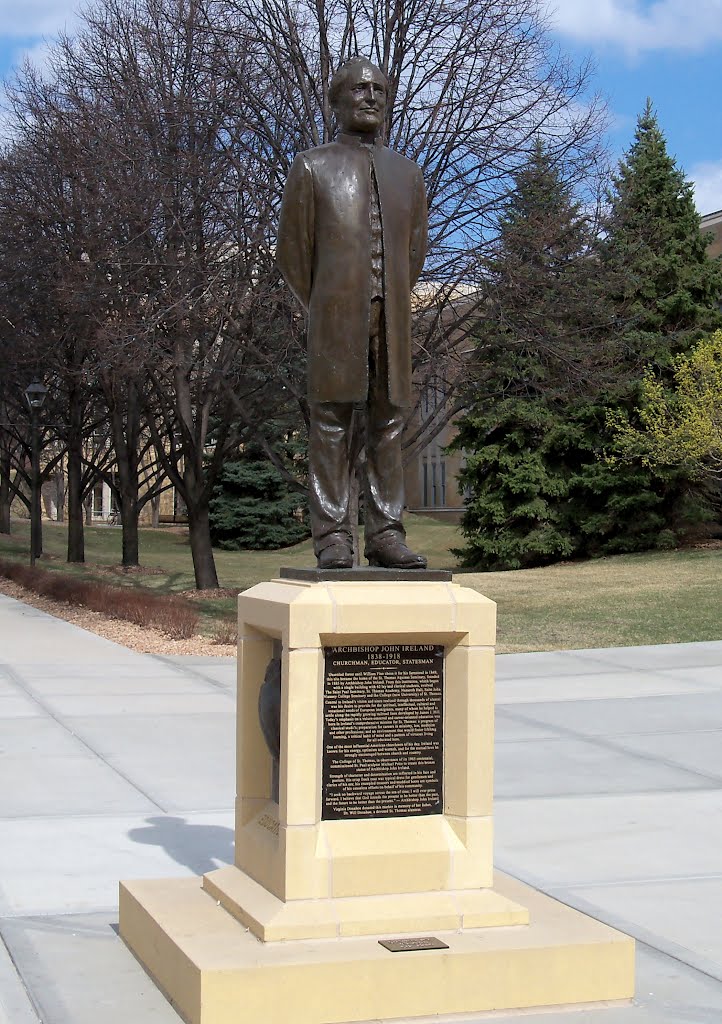Snow Crash
By Mike Zone
Months ago before all this began during the harsh winter storm that brought down frozen tears in well maintained suburban houses and somber smiles of a fierce yet humbled resilience which crumbled into a just as fierce breaking and an anxiety of a crippling nature behind the closed doors of the homestead. Barry Klatt sat by the window of in his reading chair dressed especially dashing in tweed green slacks with a brown sweater over a cream dress shirt, hoping a car would crash into a tree, that maybe there would be a lone survivor, preferably a pretty woman with an unblemished face with no recollection of who she was before the accident.
HE WOULD NURSE HER BACK TO HEALTH.
They would fall in love or at the most dismal grow to a romantic carnal affection.
There would be mutual moist kisses and permissive penetration of any God given orifice but first he had to dress to impress and make sure to take photographs to document what a gentlemen he was never to lay hand upon her until a sweet declaration of love.
What if the survivor, were a child?
If it was a female nearing puberty he could care for her like a daughter, raise her into womanhood and a share natural matrimony as she grew to age.
What if it were a male of any age?
Let them burn.
He’d even pour gasoline onto the car and produce a match if needed.
He preferred blondes.
Gentlemen preferred blondes. Ergo, he was a gentlemen.
He selected a book from his secondhand cornflower blue bookcase. A paperback of Japanese death poems though he considered by Charlotte Bronte, he didn’t want to hammer away at a completely implausible simulation. He was the scholarly type who just happened to be a man’s man of the heart with the soul of a poet but didn’t want to venture into type of terrain where he would start questioning himself again.
FIRE IN THE SKY.
A meteor shower was forecasted on the weather channel. He wished upon multiple falling stars. There was a minor tremor and crunching thud, heard moments ago.
Barry Klatt sat in his chair, reading the same poem after half a dozen times or so waiting for his bruised and bloody celestial angel.
Freshly shaved, pink completely shaved bullet shaped head and horn-rimmed glasses with a barely self-contained smile across his lips, slightly tasting the hair from his sandy goatee. Barry’s mind wandered into a sensation of uneasy serenity dwelling in a cave with a monk finding enlightenment envisioning cherry blossoms falling to the ground but only for a moment when a sudden knock at the door broke his trance.
He casually put his book down and cleared his throat as his hand clasped the knob of the door. He had to brace himself for what would follow, whoever it may be…
And just like that a Hollywood wet dream came true, like Hitchcock’s Vertigo or a Harryhausen spectacular like Earth vs. Flying Saucers…you know one of the good ones?
SHE stood at the door, trembling with a dazed incredulous look on her face. Eyes as wide as flying saucers, seemingly dizzy with a heavy case of vertigo, she gasped and fell into his arms.
A FRENCH BLONDE WITH PROMINENT CHEEK BONES. EYES ROUND AS ALMONDS.
Klatt could barely contain his raging boner as the heaving bosom beneath the open ski jacket pressed against his belly and golden locks with red droplets, smoke and scorched metal scented flooded his nostrils and invaded his optic nerves causing a nervous organic jolt throughout his body.
Was it electrical or was it something more otherworldly like ghostly tentacles not quite intangible stroking his atoms trying to rip him apart like amputee haunted by phantom limbs?
He desperately prayed, she did not remember who she was or where she had had after the great awakening. Should he just her place on the couch outstretched, prepare a meal and wait or was it capable of manifesting itself into a dire panic-stricken situation which would require duct tape over the mouth and the emergency shackles placed near the bed with silky pajamas down in basement?
Klatt didn’t think of himself as a monster, but some monsters had good ideas and he was acting with most noble intentions, so how could he even be considered a monster when he was merely following the path of a preordained divine love?
HE WOULD LAY HER ON THE COUCH.
If she woke up screaming?
How could she? He was about to make a big heaping bowl of mashed potatoes with chives. It would rest near her steaming and if screams were to be uttered and stuff so full of buttery carbs, she’d fall asleep full content and satisfied…after initial terror and despair from the unknown.
He removed the jacket and her trendy boots, setting her on the side with her facing him. Let her find something plain, soft and calming if she were to arise from her disoriented state, it may settle her mind allowing the brain to percolate a bit before going off the rails in an alarming fashion.
Also hanging above the couch was a gold print by Georgia O’Keefe, who could lose all rational composure when taking in the stunning visual of an all-encompassing desert flower?
When things used to go awry with your grandfather Barry, I’d just close my eyes, tip my head back and picture flowers blooming… his mother would often say, staring off into a place where she seemed to believe space existed but all there was, was a wall painted cornflower blue.
Klatt couldn’t help but admire her classic hourglass shape and almost aged out classic movie star unintentionally seductively cascading hair as he looked over the island of his cramp checkerboard floored kitchen.
“Is this love?” he wondered aloud, imagining a sense of tranquility in a blank slate mind alongside the impact of Cupid’s arrow as he grabbed the whisk along with his bone white mixing bowl transfixed by a sky seemingly littered with falling stars among the reign of thousands of snowflakes.
THEN IT HAPPENED…
As soon as Klatt jubilantly slammed a sack of red skin potatoes on the counter, flaming white heat crashed into blinding white snow and mesmerized by the sound of silence and what should have been blind light, Barry soon found himself out in his backyard, snow half way to his knees, not thinking about wet socks and the warped leather of loafers, trudging almost instinctively toward steaming snow melted crater, finding a shimmery silver sparkling albino octopi , weakening tentacles flailing about searching for even the dimmest hope of survival.
Klatt immediately took the creature and cradled it carefully in his arms, not dismayed but confused as to why he was taking such an action with self-inquiry. Did love really have the ability to bestow such courage?
Sometimes sentinels are sent to die… His heart seemed to sing the statement in mind through the rhythm of life sustaining thumping.
He washed the extraterrestrial cephalopod in the sink with tepid water. It was limp. He waited a few moments.
Would chunks of intergalactic octopi of a standard nature be welcome in these spuds he would mash for his lady love?
The stable butcher knife in his trembling hand didn’t answer his question as he drove the blade into the creature’s head and swiftly split it down the middle, as a milky liquid spewed forth running down his hand being absorbed into his pores as he drove his free hand into the octopi’s head crushing some sort of pulsating organ into its palm.
On the other hand, sentinels resting between the borders between entropy and infinity have a much better grasp on how the universe works and if there just happens to be a tear in the fabric of being in time and new worlds open, isn’t it time for a bit of trans-dimensional perusal and genetic acclimation for exploration? Moaned Klatt’s veins being cleaned out by piano wire.
Something starting breaking and snapping inside Klatt as his knees shattered and organs slide up his chest, a cold thrust rushing up an out of his mouth immediately being caught in a deluge of black celestial charged ink projected from the octopus in the sink, as it lay dying, yellow eyes wide open locking onto Klatt’s own ocular orbs.
The duo’s pupils dilating, filling the eyes eclipsing blues and yellows, liquifying and emulating the alien ink being spurted about the room, each one seeing and experiencing what the other had in each his respective world…
Klatt could taste the color of music emanating from stars long burnt out, a kaleidoscopic spectrum of swirls and rays containing white heat hazes normally perceived by three dimensional receiving creatures as universal dark void but nothing as it seems as the void is a reflection of infinite potential the source of universal chaos and genesis entropy. Tentacles suctioned to the energy of time and space, tearing it asunder to explore new worlds outside their own realms causing ever more variances subverting the nature of time and reality itself…could universes branch out and eventually stretch to a breaking point where all of us and everything could exist at once never really being full living beings but a mass entity of existence growing on a tree being devoured by these beauty sleek, silver lined creatures with yellow star shining eyes who could pick a random body, form it to its needs akin to terraforming and implant its consciousness within, so it live through an eternity?
Klatt saws worlds die and be born in intergalactic fire and rain, wondering if this is how he was meant to die without feeling self-satisfied individualized romantic love…
KROMM STARTED TO BREATHE THROUGH THE VARIOUS ORFICES OF KLATT….
The octopi was essentially what would be considered a point for his people. He slung himself into Barry Klatt’s mouth, gradually shoving himself inside.
Words entered Klatt’s mind, at first booms as they faded away with what he felt was his existence.
You yourself will never know how you were meant to live and die, Barry Klatt except for what befalls your Terran mind and body in these moments. Part of your mind shall survive as will your body but you as an entity shall not. I shall retain how little you’ve lived along with certain characteristics which gradually erode along with the memories your mind has recorded. I wish you well in a place you shall never journey to for the existence of a world outside life has alluded us for tens of thousands of epochs. Probability is an objective god of a neutral source and you shall find no mercy as trillions of creatures born to die in various natures have not.
There was an explosion of ink, blood and human male organs splattered on the wall.
Something crawled toward the couch where a beautiful slightly bruised woman rustled around in her sleep. The creature that was not yet fully Kromm yet incompletely Barry Klatt gazed down at her as it stroked its newly sprouting sixth tentacle, eagerly awaiting the other two, secreting something between ink and saliva as it reached a tentacle to stroke majestically golden hair.
Would it eat her?
Love her?


